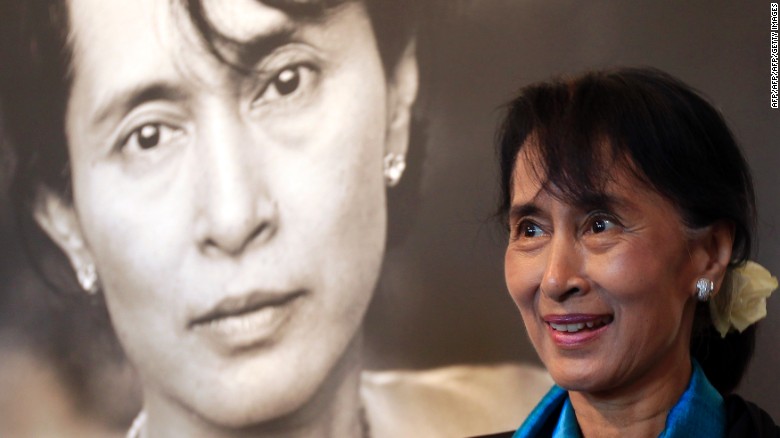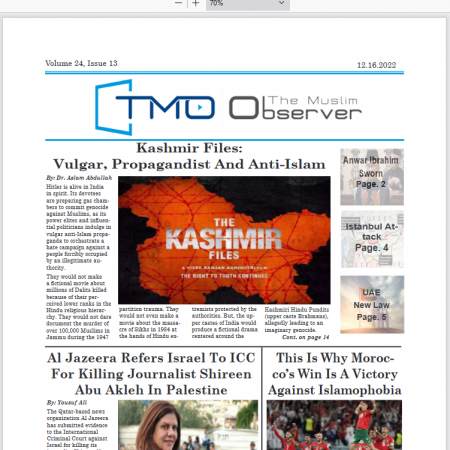Working Indian Muslim Women: Least Affected By A “Fatwa”
By Nilofar Suhrawardy, MMNS India Correspondent
 |
Muslim children sit on the roof of a house next to a mosque after morning prayers in the old quarters of Delhi, May 14, 2010. REUTERS/Adnan Abidi |
NEW DELHI: The alacrity with which fatwas issued by Indian Muslim clerics gain media coverage, particularly when they are regarding Muslim women, demands an analysis of the issue from several angles. One is whether the media gives coverage to complete “news†regarding fatwas, secondly whether they really have been issued or not, significance of these fatwas for Indian Muslims and socio-political value of the same. The latest fatwa to hit headlines is one opposing working of Muslim women and their contributing to household income. Even before details about this fatwa were clarified, “news†and “views†of reaction against it dominated the media. So much so, that noted lyricist Javed Akhtar, who has been recently nominated to Rajya Sabha (Upper House of Indian Parliament) received “death threats†for apparently calling the cleric who issued the fatwa “insane†during a television debate. Akhtar has been provided security by Mumbai-police. “We have provided security to Javed Akhtar by posting armed guards at his house. The guards would follow him wherever he goes,†a police official said.
Alarmed by the storm raised over the so-called fatwa opposing working of Muslim women, leading clerics and Muslim leaders wasted little time in clarifying their stand on the controversial issue. Asserting that Darul Uloom, Deoband (Saharanpur, Uttar Pradesh) had not issued such a fatwa, the Islamic seminary’s spokesperson Maulana Adnan Munshi said: “We had only given an opinion based on Sharia that women need to be properly covered in government and private offices.†“No new fatwa was issued,†he said. He also denied reports on the Deoband institution being opposed to men and women working together. Elaborating on this stand, Mufti Mohammad Shakeel said: “We have not issued any such fatwa declaring a woman’s financial support to the family as illegal. I fail to understand how such a news was flashed across the media.â€
Suggesting that cleric’s stand on the issue had been misinterpreted, another Muslim cleric said: “There has been no fatwa against working of Muslim women. There has been probably some confusion over saying that it would be preferable for her to work with permission of others in the family.â€
Some credit must be given to Indian media for paying substantial attention to Muslim leaders who have opposed and also questioned the so-called fatwa. “There is no question of principles of Islam dismissing a woman’s earnings through legitimate means as illegal,†according to Maulana Khalide Rasheed, who heads Lucknow’s Islamic seminary, Firangi Mahal. Specifying that “Islam does not discriminate between men and women,†he said: “A woman has as much right to contribute financially towards running a family household as her husband.â€
Paradoxically, the so-called fatwa against Muslim women working raised a storm without substantial importance being given to whether such a fatwa was actually issued or not. The fatwa would have continued raising controversies, opposing and supporting it, had the concerned clerics not quickly clarified their stand on the issue. Besides, socially, politically and economically, prospects of such a fatwa being supported by Muslim women themselves seem to be practically non-existent. It cannot be missed that the sub-continent is witness to significant number of Muslim women having succeeded in holding top-level political positions in their respective countries. At the grassroots, Muslim women are employed in various jobs not simply to add to the family income. Their main aim is to feed and educate the family and if possible save a little for their hours of crisis and/or other needs. They are employed as part-time or full-time domestic maids, engaged in cleaning utensils, washing clothes, cooking, sweeping the floors and similar household chores. At a higher level, they are employed as assistants in beauty parlors, stitching clothes, knitting woolens, embroidery work and so forth. The list is endless. Muslim women are visible in India as engaged in work in practically all walks of life, including academics, politics, law, media, business, management, medicine, administration, bureaucracy, sports and so forth.
Not surprisingly, when questioned on the so-called fatwa, former legislator Syed Shahabuddin said: “It is not possible to follow such a fatwa.†There is yet another angle to easily-generated controversies regarding actual or assumed fatwas. A Muslim cleric, with specialization in Islam, has the right to express views on matters, particularly if they are related to Islam. He may do so when questions on specific issues are posed to him and/or whenever he feels it is appropriate to do so. Howsoever, his views and/or fatwas are constitutionally not binding on the entire Indian Muslim community. Besides, it cannot also be ignored that Indian Muslim community is divided within itself into numerous groups- with each holding a different stand on certain issues. These groups include Shias and Sunnis, Deobandis and Barelvis among numerous others. So even if a fatwa is issued by a prominent cleric of one of these groups, it may not be expected to have similar significance for Muslims of other groups or even of the same group. The significance of the fatwa may hold greater importance for Muslim leaders, the media than for the common Muslims, who may not be even aware of any fatwa having been issued. The last point certainly holds true for the so-called fatwa against working of Muslim women. The controversial fatwa did raise a storm in media and among Muslim clerics. It did not take long for it to settle down with the clarification that no such fatwa had been issued. The storm rose and passed by with absolutely no impact on Muslim women remaining engaged in their respective jobs!
12-21














2010
860 views
views
0
comments